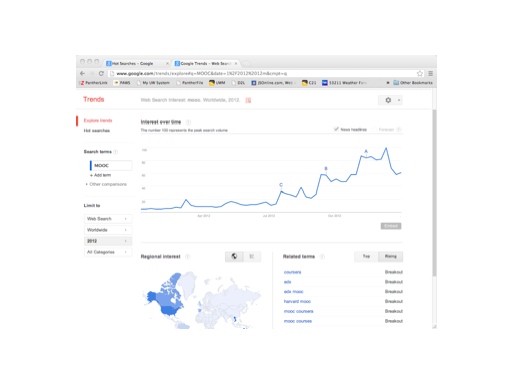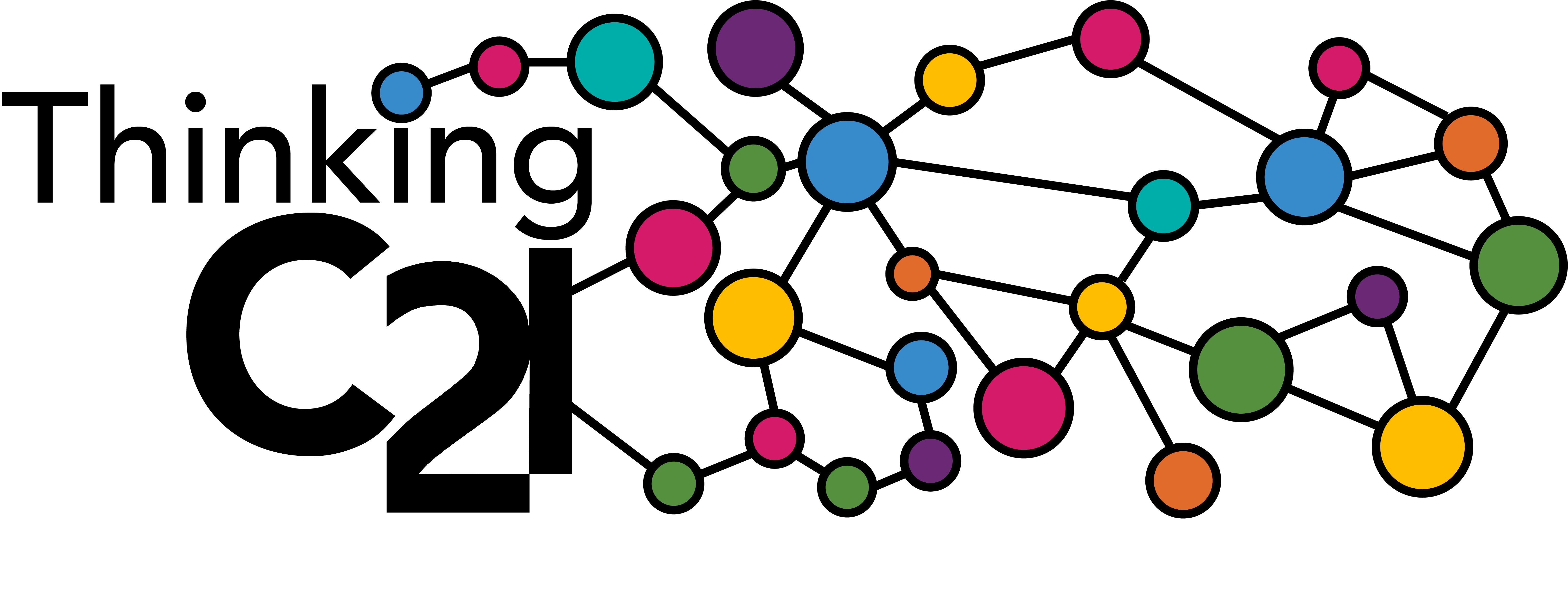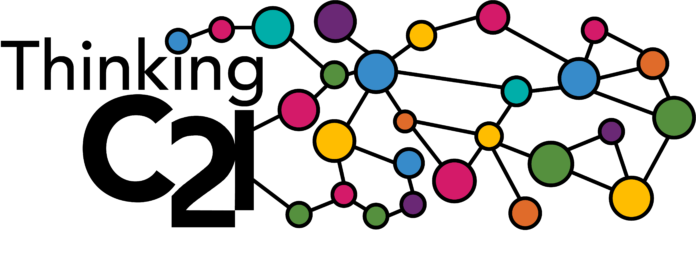By Richard Grusin
[NB: The following paper is an expanded version of the paper I delivered at #MLA13 #S307. The text up until the row of asterisks is with only the most minor wording changes identical to my presentation at the roundtable. The paragraphs following the break revise and expand upon a paragraph I had written before the session but eliminated in the interest of time. These revisions are designed to clarify my argument in relation to issues raised in the response to the session in the Twitterstream during the presentations, the Q&A after the presentations, and the online and F2F discussions that have continued after the session.]
The proposal I submitted for this roundtable last Spring opened with the following questions: “Is it only an accident that the emergence of digital humanities has coincided with the intensification of the economic crisis in the humanities in higher education? Or is there a connection between these two developments?” I began with these questions to help make sense of a feeling that has bothered me since MLA11—the incommensurate affective moods between panels on “digital” humanities and those on what might be understood as “crisis” humanities. This mood did not appear suddenly in 2011 but has been emerging, largely unspoken or ignored, at least since the financial meltdown of 2008. Nor has it gone away, as demonstrated by the current MOOC bubble, which generates digital utopian arguments about the remaking of higher education while intensifying the sense of precarity that has come to replace the security of tenure as the predominant affective mood of the academy. [FIG 1]

The first convention held on the new January schedule, MLA11 had been premediated as something of a new start for the Association. This sense of a new beginning was accompanied in Los Angeles by a sense of loss evident in panels devoted to the crisis in the humanities that had bee produced by radical funding cuts in public support for education in Europe, Australia, and the US. These cuts, and the concomitant transformation of the professoriate, have been under way for several decades now (particularly in the US) but in the recessionary aftermath of the financial crisis of 2008, they reached a level unimaginable to most academics. Panels on the immediacy of the crisis in the humanities were accompanied by widespread historical critique of the devastating effects of the neoliberal university and its catastrophic legacy for the future. The urgency of this new “critical university studies” was especially palpable in California, where the UC and CSU systems have only intensified their corporatism under continued funding cutbacks from the state.Yet MLA11 was not all doom and gloom. The sessions I attended on the digital humanities were marked by an affectivity of vitality and growth, of optimism and new beginnings. A comparatively prosperous IT funding climate created a set of issues and concerns for DH scholars very different from the economic crisis so palpable elsewhere. Packed panels on the future of digital humanities or the role of social media in fostering public intellectuals were filled with laughter, hope, and a sense of empowerment coming partly from the growing investment of human and economic capital in digital humanities projects by university administrators and partly from the financial resources available to DH teachers, scholars, and developers from corporate, non-profit, and governmental foundations. DH panels, too, addressed challenges produced by the changing climate in the humanities. Of most concern among DHers was the difficulty in getting departmental and university tenure committees to provide appropriate credit to digital work that does not end up as refereed articles or scholarly monographs and the lack of professional recognition for technical labor, which was too often performed by non-tenure track members of the academic precariate. For the purposes of this roundtable I would characterize the problem of reforming criteria for tenure and promotion a “first world problem” and note instead the way in which the institutional structure of digital humanities threatens to intensify (both within DH itself and among the humanities more broadly) the proliferation of temporary, insecure labor that is rampant not only in the academy but throughout 21st century capitalism
Paradoxically, the key to this dual intensification of academic precarity is the very act that Digital Humanists often use to distinguish themselves from the traditional humanities: “making things.” At MLA11 DH panels devoted a good deal of energy to boundary drawing, which often depended on the distinction between making or producing things and critiquing them. In the panel on “The History and Future of Digital Humanities,” for example, I learned that I was not a digital humanist because I didn’t code (“Keeping a blog does not make you a digital humanist”) or because I didn’t “make things” (tell that to anyone who has labored for an hour or more over a single sentence). In the aftermath of MLA11, this invidious distinction between making things and merely critiquing them has come to be one of the generally accepted differences that marks DH off from the humanities in general. As recently as this past September one could see the distinction at play in the following brief Twitter exchange between HASTAC co-founder Cathy Davidson and Vectors founding editor Tara McPherson. [FIG 2] To McPherson’s boundary-drawing “worry that much of theory/cult studies tends toward critique as an end in itself,” Davidson quickly replies: “Could not agree more. Critique hard. New ideas much harder. Making stuff work really, really hard!”

Sadly this pattern continues to reproduce itself in the current explosion of MOOC mania in print and online media, where much of the burgeoning interest in MOOCs has come from liberal administrators caught up in the convergence of neoliberal calculus and digital utopianism. At the same time that the market logic of neoliberalism has been used to decimate the mainstream humanities from within and without, this same logic has encouraged foundations, corporations, and university administrations to devote new resources to the digital humanities and beginning over the past year to the development of MOOCs and other online forms of “content delivery.” If it is largely due to their instrumental or utilitarian value that university administrators, foundation officers, and government agencies are eager to fund DH projects, create DH undergraduate and graduate programs, and hire DH faculty, it is also the case that this neoliberal instrumentalism reproduces within the academy (both in traditional humanities and in digital humanities alike) the precaritization of labor that marks the dark side of information capitalism in the 21st century.
* * * * * * * * * * *
Thus, to answer the question with which the essay began, I would assert that it is no coincidence that the digital humanities has emerged as “the next big thing” at the same moment that the neoliberalization and corporatization of higher education has intensified in the first decades of the 21st century. The category of “digital humanities” covers a diverse and heterogeneous range of projects, including but in no means limited to publishing, pedagogy, editorial, creative, and critical work, ranging from close individual attention to single texts to the creation of games and other interactive formats to the mining of big data for patterns imperceptible to the individual scholar). Taken as a whole, however, digital humanities reproduces structurally both within itself and among the humanities writ large the proliferation of temporary, precarious labor that has marked late 20th and 21st century global capitalism. Substantive digital project often entail collaborations among tenured and tenure-track faculty, students, and more precarious technical and non-technical staff. To avoid becoming obsolete such projects will inevitably need ongoing or renewed support if they are to be updated or redone as new technologies continue to replace the technologies with which DH projects were initially created.
Furthermore, the distinction between making things and critiquing them that is often (but admittedly not always) deployed by DH scholars feeds into the widespread 21st century belief that the primary (if not the only) reason one goes to college is to be prepared for a job immediately after graduation—to be taught marketable skills. And in light of the untenable burden of student debt generated both directly and indirectly by the reduction of government support for higher education in the past few decades, the pressure to obtain a well-paying job after graduation has increased dramatically. I do not mean to say that individual tenured and tenure-track faculty working in digital humanities necessarily share the neoliberal vision of higher education that leads academic administrators and public and private foundations to devote an increasing share of the limited resources for the humanities into DH projects and hires—indeed many, most likely a significant majority of them, do not. It is, however, to say that institutional support for digital humanities by administrators, foundations, and legislators can work to conceal or compensate for reduced support given to the traditional humanities, and as such can contribute to the undermining of the liberal arts in higher education.
To hazard a probably ill-advised metaphor, I worry that digital humanities projects might serve as something like gateway drugs for administrators addicted to quick fixes and bottom-line approaches to the structural problems facing higher education today, providing them with the urge to experiment with MOOCs and other online forms of “content delivery,” which is how college courses are being increasingly defined by university administrators, government officials, and techno-utopians alike. Thus rather than encourage administrators to think that MOOCs and similar forms of “online content delivery” can substitute for traditional college courses, digital humanists should use their access to administrators and increasing visibility to advocate more intellectually responsible ways of integrating digital media into the humanities by providing models of digital humanities projects that are progressive both in terms of labor and in terms of scholarship, even if, or perhaps precisely because, the creation of new forms of knowledge through digital mediation is more costly and requires more highly skilled and compensated labor than traditional classroom education. Consequently it is important that digital humanists make a concerted effort to ensure that administrators, foundations, and legislatures are able to distinguish the scholarly goal of creating new modes of knowledge production from the instrumental goal of delivering college education more cost effectively through the continued decimation of the tenured and tenure-track professoriate.
Digital humanists should stop (as many already have) making invidious distinctions between critique and production, between academic work pursued for its own ends and academic work that is instrumental for other ends. Such distinctions feed into the beliefs of administrators and state legislators that the humanities do not further what they take to be the chief (if not the only fundable) goal of a college education—training students for currently existing jobs. I would similarly encourage digital humanists not to automatically valorize collaborative over individual projects, or openly shared work over work done in private. It is crucial for the humanities to preserve the opportunity for students and scholars to work slowly, privately, and independently of the pressures of socially networked media to constantly update others on what one has just written or thought—if for no other reason than that the unquestioned emphasis on collaboration, openness, and sharing is aggressively marketed and sold by tech media companies to sell more devices and services and by corporate social media companies to generate massive data sets to be mined for purposes of commerce and security.
In order to counter the ongoing tendency towards defunding and devaluing the humanities, digital humanists need to consider (as many indeed already are) not only how new media technologies reshape or refashion what we mean by a humanities education in the twenty-first century but also how the humanities have always already been engaged with, indeed have co-evolved with, technologies of mediation throughout their history. At least since I published “What Is an Electronic Author” in a 1994 special issue of Configurations (2.3: 469-483), I have in my own work been committed to challenging the techno-utopian enthusiasm and revolutionary rhetoric promoted both by well-meaning academics and by the media and information technology industries. As Jay Bolter and I first argued with the initial publication of “Remediation,” also in Configurations (4.3 [1996]: 311-358), new media are most interesting for the way in which they refashion or remediate earlier media forms. Digital media can help to transform our understanding of the canon and history of the humanities by foregrounding and investigating the complex entanglements of humans and nonhumans, of humanities and technology, which have too often been minimized or ignored in conventional narratives of the western humanistic tradition. Just as the digital humanities can help to redefine our traditional humanistic practices of history, critique, and interpretation, so these humanistic traditions can help to refine and shape the direction and critical focus of digital humanities and its place in the institutional infrastructure of the academy. In the face of the 21st century crisis of the humanities in higher education, all humanists should be working together to defend the value of humanistic inquiry in and of itself from the instrumental logic and systematic defunding brought about by the neoliberal assault on higher education.
[Richard Grusin is the Director of the Center for 21st Century Studies and a Professor of English at UWM. He is author of Premediation: Affect and Mediality After 9/11.]


